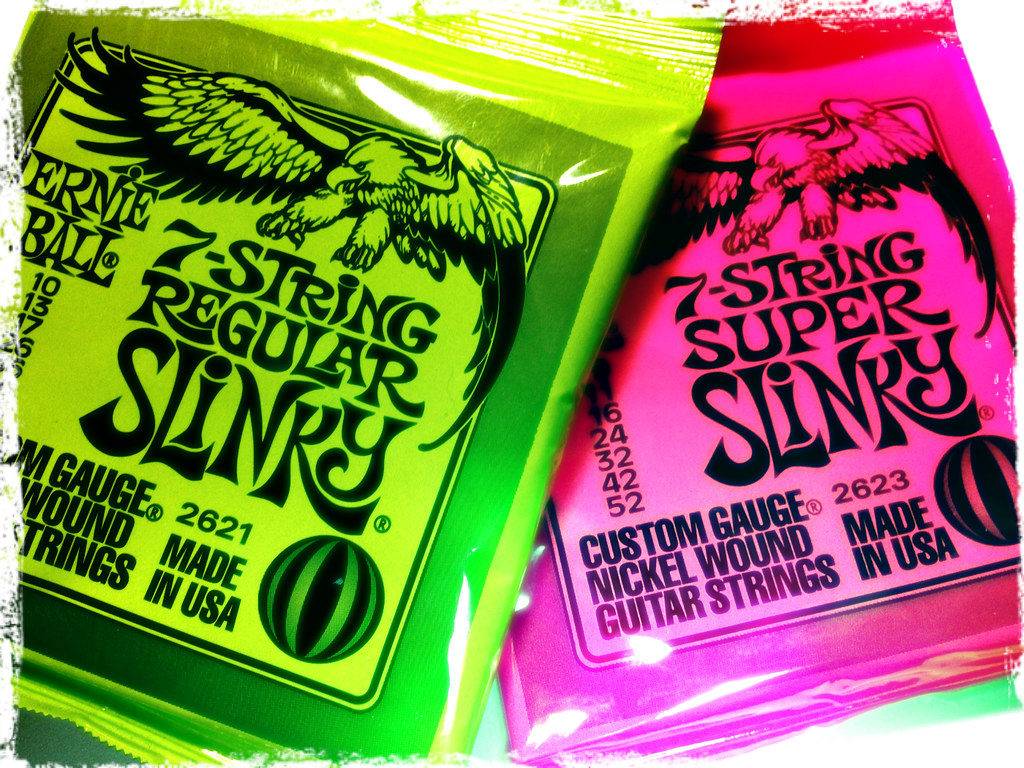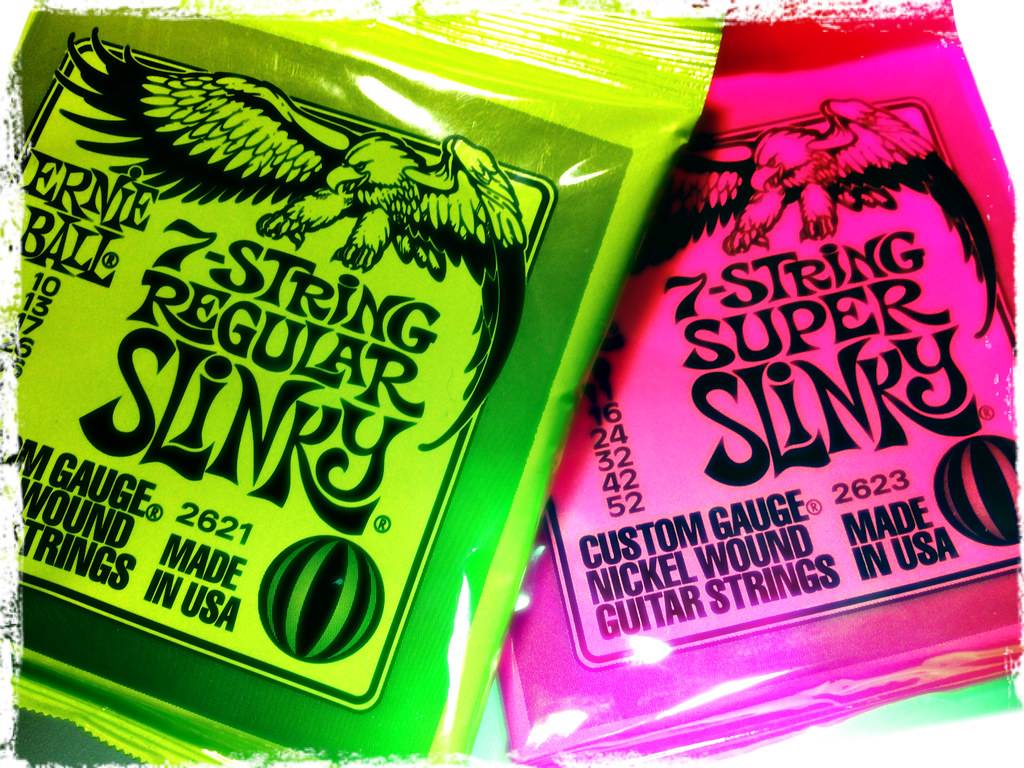
Beginner’s guide to Electric Guitar String Gauges. How do you decide on the perfect gauge for you? Read on…
What are Electric Guitar String Gauges?
Electric Guitar strings usually come in sets/packs of six, of different thicknesses or gauges. These normally start with .008 (of an inch) gauge packs (or 8’s), moving up to 12’s which is more than your average player can deal with in most circumstances.
Common electric guitar string manufacturers include Ernie Ball, Rotosound, and D’Addario, but there are many others.
The most popular gauge is a .010 (top E) to .046 (Bottom E) set. But many combinations are available, for example, a light top / Heavy bottom hybrid set.
So how do you go about choosing the perfect electric guitar string gauge for you? Here are the factors to consider…
Lighter Guitar Strings Gauges are easier to play
The lighter the guitar string gauge, the lower the string tension, which equates to less pressure being needed to bend or fret a note, or in other words, better playability.
Of course, string gauge isn’t the only factor affecting string tension. Scale length, tuning reference (e.g. drop tunings equate to less tension) and break angle at the nut and bridge also play their part.
To take the example to the extreme, Brian May’s Red Special has a scale length of 24″ (609.6 mm); compared to the Gibson standard of 24.75″ (628.65 mm) and Fender’s common 25.5″ (647.7 mm). It also features pretty much no break angle at the nut and bridge. This setup, combined with the 8 gauge string he used for most of his Queen career, represents just about the least tension possible, hence the greatest playability.
From my personal experience, despite a lightning-fast playing experience, 8’s and 9’s are too ‘floppy’ on a Gibson, but work much better on a Fender which has a longer scale-length and higher tension.
Heavier Guitar String Gauges produce better tone
Tone is highly subjective, but heavier strings consist of more material producing a larger spectrum of vibration. This is translated into more volume through the pickups and less of the frequencies being lost.
Personal opinion: Heavier strings give a thicker, more sustaining tone.
Heavier Guitar String Gauges last longer
Just physics at play here. More material last longer. It depends on how you play of course, and the grade of the plectrum, but all things being equal, this holds true.
How is the life of the string measured? For me, I don’t break a lot of strings, but when the intonation starts to go out after the high E 12ft fret, that’s when I know it’s time for new strings.
Heavier Guitar String Gauges have superior tuning stability.
All strings will be problematic in changing temperatures, with a poorly setup nut or saddles, or if they haven’t been stretched in properly. If these issues are dealt with, the heavier string will last longer than lighter ones.
Heavier Guitar String Gauges reduce fretting out and fret buzz.
Greater tension = less string buzz. But this will also depend on neck relief and action.
Advice on choosing your Guitar String Gauge.
- If the optimum tone is your goal Choose the heaviest set you’re comfortable with. Try to build up to 10s.
- If the guitar is well set up and stable, and playability is your number one priority (or you’re a beginning guitarist), very light gauge strings should present no problems.

Leave a Reply